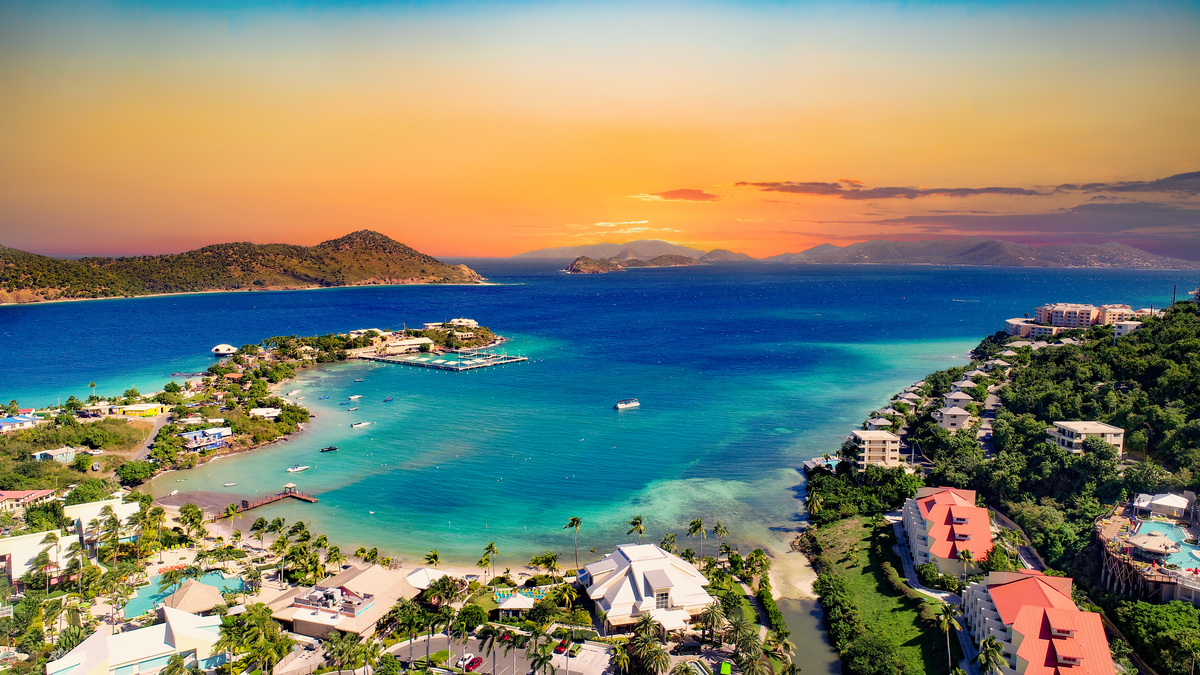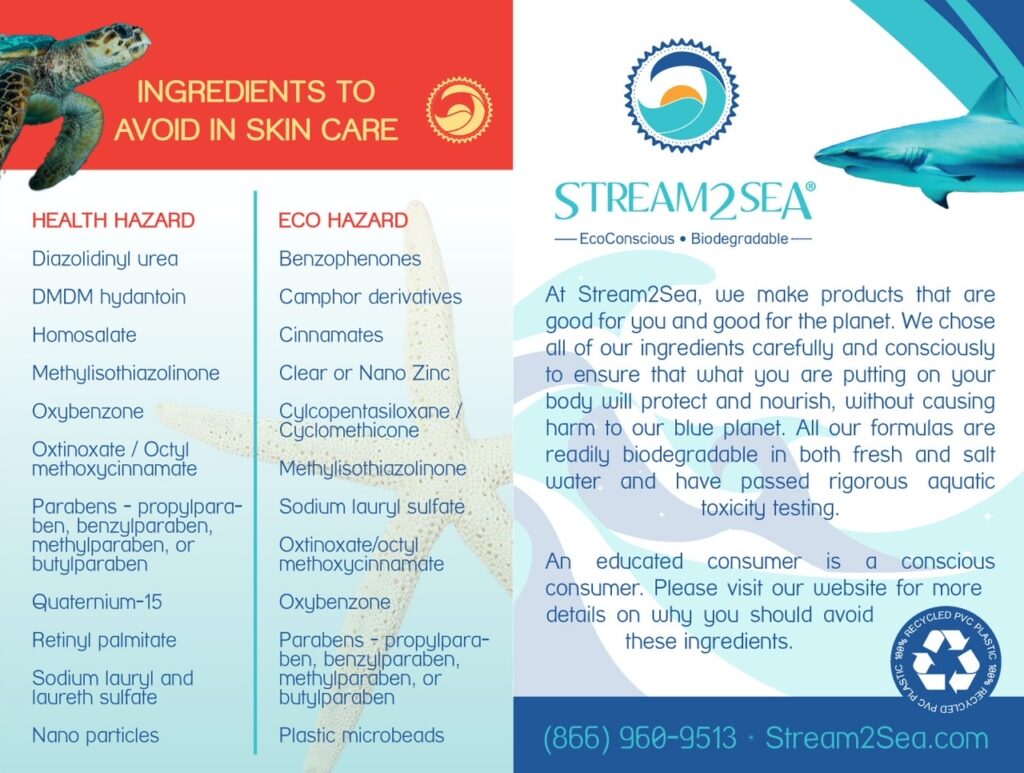
The Importance of Being Eco-Conscious on a Boat. Working as a charter captain, I see a huge variety of sunscreens and body products. I like to read what’s on the front and then look at the back. It’s absolutely incredible that some brands that we perceive as being very good for us and the environment include poisonous chemicals.
That experience led me to conduct a lot of research and choose Stream2Sea since their founder, chemist Autumn Blum, creates totally, truly reef-friendly products. She’s also a scuba diver like me, and I trust her, her natural ingredients, extensive testing, and research.
It is essential for boaters to be aware of toxic chemicals in products they use onboard daily since all of those ingredients end up directly back in the ocean through gray water emissions. More and more, boaters are becoming aware that it’s not only the chemicals in sunscreen but also the products they put on their bodies that can harm the environment. Shampoo, conditioner, body wash, hand sanitizer, and lotion – can all contain harmful ingredients.
It irritates me greatly that sunscreens and body products routinely feature words on the front of the bottle that can be misleading and downright untruthful. Words like “natural, reef safe, environmentally friendly” don’t have much to do with the list of ingredients on the back of the bottle. Turn it over, and check for yourself. Even when products call themselves “reef safe“ or “ocean-friendly“, the astute boater needs to read a bit further and recognize some toxic active ingredients listed on the back.
Believe it or not, most of our favorite sunblock brands contain chemicals that can severely increase corals’ chances of bleaching, disrupt their DNA and reproduction, and hinder their growth. These chemicals also disrupt the endocrine and reproductive systems of other marine animals. It’s worth mentioning that these ingredients, while they do protect our skin from the sun, aren’t healthy for humans either.
Sunscreen is a big concern for boaters. Not only do we apply this chemical to our bodies daily if not nearly hourly; it also ends up in the water. Also, spray sunscreens create a lot of overspray which not only finds its way into the water but also makes the boat slick and dangerous. Most boat charter companies prohibit the use of spray sunscreen for that reason.
Try mineral sunscreen instead of chemical sunscreen. The active ingredient in mineral sunscreens is either non-nano zinc oxide or titanium oxide. These sunscreens form more of a “physical barrier” from UV rays and are much safer for the ocean. They may take some getting used to, as they tend to be a bit thicker and can leave a white color on the skin if you use too much. Simply use less and rub it in well!
The active ingredients in chemical sunscreens might be ones you have heard of that are banned in Bonaire, Palau, Hawaii, and the USVI. They are oxybenzone, octinoxate, octisalate, and avobenzone. While these are the main culprits, there are other chemicals that can harm the ocean as well as ourselves.
Read more about ingredients to avoid on sunscreen.

The products that we use while boating to moisturize our skin, shampoo, and condition our hair, and body wash also end up directly overboard. That’s why it’s so important that we monitor the ingredients in all products that we use because many labels are misleading. One company has made it so easy to know if the products you are using are truly reef-friendly and biodegradable – Stream2Sea.
There are a few other changes you can make to make life on board more eco-friendly. Don’t bring any single-use items onto the boat. Bring your own water bottle to refill. Bring a few shopping bags (fortunately, some countries have already banned plastic bags or are charging extra for them).
You can use what you learned prepping for this trip as an important lesson, even if you don’t live anywhere near an ocean. What goes in your drain flows to the ocean. Yes, those pollutants are more diluted, but “forever” chemicals and plastics do last forever. Just imagine your home is a boat, and be aware of your impact on our planet!
By Captain Anya Elis: [email protected]
Contact us at 1-321-777-1707 or complete this form to discuss your vacation plans.